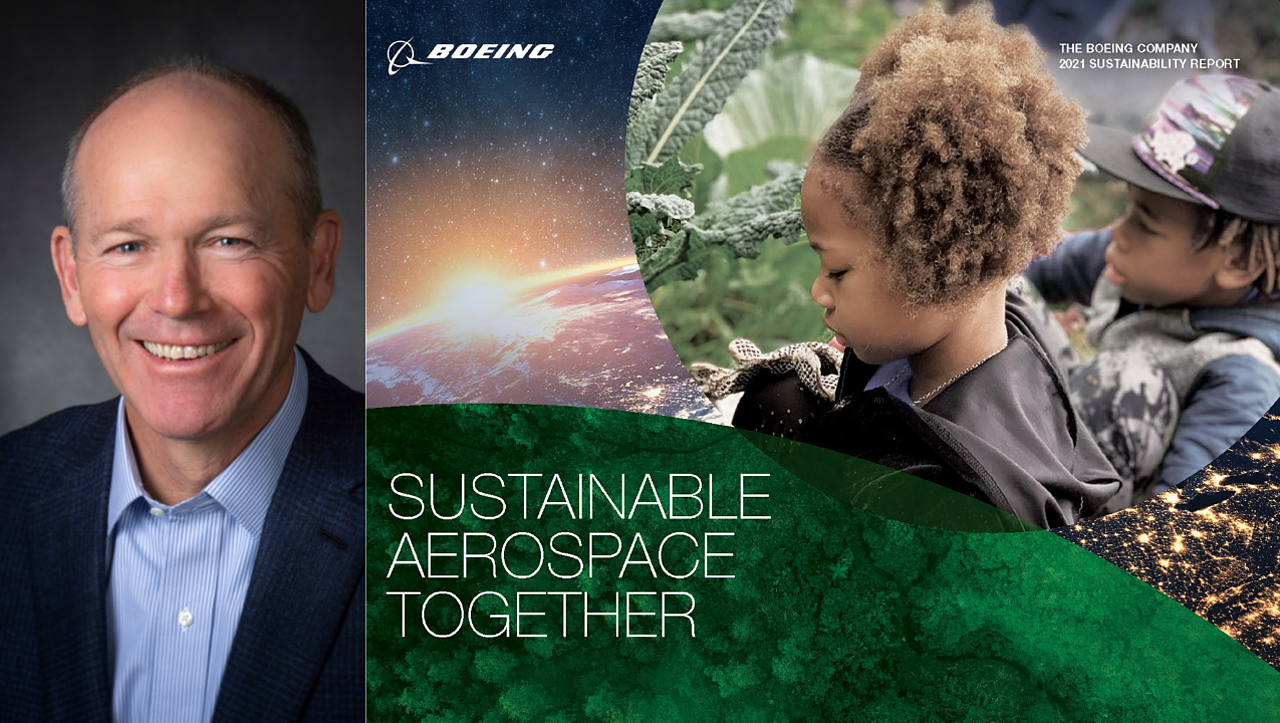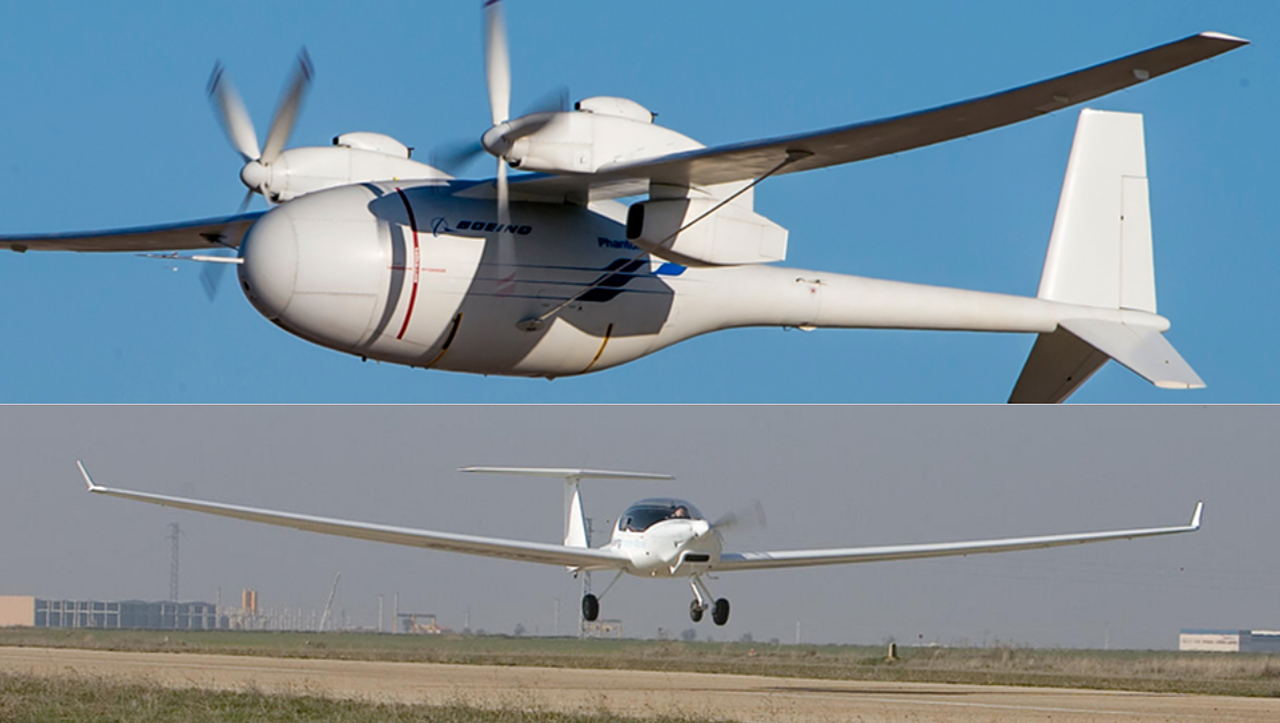
Boeing has highlighted its commitment to the future of sustainable aviation in its first-ever Sustainability Report. The US aircraft manufacturer is an aviation powerhouse with over 50,000 engineers and 2020 revenues of $ 58 billion.
Chris Raymond, Chief Sustainability Officer, Boeing, said, 'In September 2020, amidst a global pandemic, Boeing formed a Sustainability organisation dedicated to advancing our ESG efforts across the enterprise. As we continue on this journey, we are pleased to publish our first comprehensive report, focused on stakeholder responsiveness and data transparency. We know there's still work to do and are committed to communicating our progress and holding ourselves accountable to ensure the aerospace industry is safe and sustainable for generations to come.'
The accelerated global commitment to reducing carbon emissions and adopting more environmentally friendly business practices for the aviation sector is essential. Dave Calhoun, President & CEO, Boeing, said, 'One significant step in this direction is our commitment to making certain our commercial airplanes will be certified to safely fly on 100% sustainable aviation fuels by 2030. Equally impactful is helping our customers around the world find new ways to accelerate the replacement of older, less fuel-efficient aircraft.'
New commercial aeroplanes sold by Boeing today are delivering significant efficiency gains with reductions in fuel use and emissions ranging from 15% - 25% as compared to previous generation jetliners. The aviation industry is now working towards collectively reducing emissions by approximately 10%.
Embedding sustainability
Boeing is a colossus in the aviation industry with customers in over 150 countries and a global network of approximately 12,000 suppliers that help design, build and service its products. The airframer has been granted 57,178 patents over the last 70 years, with 6,275 patents granted in 2020 alone. As a result, its efforts towards sustainable aviation are an essential indication of the aviation industry's direction.
Over the last decade, the company has invested more than $ 60 billion in key strategic areas, including innovative technologies such as carbon composite materials, advanced high-bypass ratio engine designs and other aerodynamic improvements, which have been integrated across its product life cycle in a model-based engineering environment.
In addition to creating a sustainable organisation, Boeing has also appointed a Chief Engineer to advance the company's expertise in sustainability technologies and future mobility applications. It has also appointed a new Global Sustainability Policy and Partnerships leader to strengthen the airframer's focus on sustainability outside the USA.
A vision for the future
Boeing's sustainability initiatives are centred around four pillars: people, products and services, operations and communities. In addition, the company established six broad new sustainability goals in 2020.

The company will address its vision for sustainable aerospace through fleet renewal with the delivery of newer, more fuel-efficient airplanes replacing older, less efficient ones; improving network operational efficiency – thereby allowing airlines to plan more efficient routes, reducing fuel consumption and emissions along with a focus on renewable energy transition and advanced technology in power systems and platforms. By 2050 air travel will safely carry 10 billion passengers a year, support 180 million jobs and generate nearly $9 trillion in economic activity.
Boeing's 2030 environmental performance goals include achieving net-zero carbon emissions at work sites while reducing energy consumption by 12%, water use by 23%, solid waste by 44% and hazardous waste by 34%. It achieved net-zero carbon emissions at its factories and worksites last year by expanding conservation and renewable energy use. It also secured responsible offsets for its remaining greenhouse gas emissions. Boeing has also been working to recycle excess carbon fibre material left over from the manufacturing process for commercial airplane assembly. The company's recycling initiative could potentially divert up to 454,000 kg of waste from landfills each year, which could be used instead by its partners and potentially by other non-aerospace generators.
Digital engineering delivers sustainability benefits
Digital engineering will also transform the aerospace manufacturing sector delivering unprecedented benefits due to the intersection between digital engineering and sustainability. This is especially evident by the work done by Boeing on the US Air Force's T-7A Red Hawk advanced trainer, which is the first of its digital 'eSeries' of aircraft.
Using model-based engineering and 3D design tools for the T-7A programme allowed it to deliver a dramatic 75% increase in first-time engineering quality and an 80% reduction in assembly hours. With digital engineering, more testing is done using simulators, reducing the amount of physical flight testing.
Present in the future
Long-haul twin-aisle jetliners contribute most of the aviation sector's emissions, and as yet, there are no alternative energy approaches for such aircraft.
The near-term need to reduce emissions associated with longer-haul flights has meant that increasing the use of Sustainable Aviation Fuels (SAF) remains the company's focus. Boeing states in the report that SAF offers the immediate and largest potential to reduce carbon emissions over the next 20 - 30 years across all aviation segments. 'While battery-electric energy storage and green hydrogen all have potential but will require new design studies, safe certification approaches, new technology developments, platform developments, and new system-wide ground and network infrastructure to scale,' the report states.
Boeing is a pioneer in using SAF and has been working with airlines, engine manufacturers and others to conduct biofuel test flights since 2008. It received approval for the use of SAF in commercial flights in 2011, and it undertook the world's first commercial airplane flight using 100% SAF, in 2018, as part of its ecoDemonstrator programme.
The company is also progressing its research into hydrogen, green hydrogen and fuel cell applications, which have been underway for over 15 years. It aims to leverage insights gained from its flight demonstration programmes with hydrogen fuel cells and combustion engines to inform future studies on scaled systems, configurations and infrastructure for future commercial aircraft programmes.